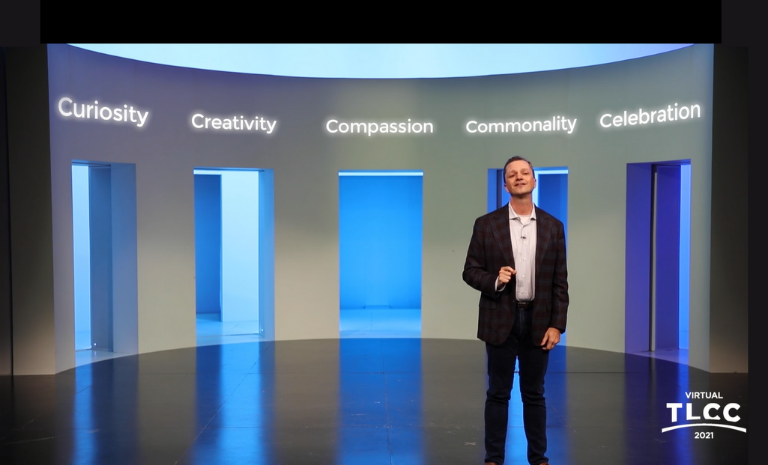Arts and Culture
Article
Insights & Innovation
a6b6f777-4c6f-4761-b3d0-aa02d7014bcd
5 min
https://edge.sitecorecloud.io/tessituraneab9a-tessiturane5642-staging-5396/media/Images/Discover-Images/Thought-Leadership/Five-Superpowers/WOLF-PLAY--768x465.png?h=465&iar=0&w=768
New research shows a connection between arts and compassion that many have long suspected.
Can arts & culture increase compassion?

President & CEO, Tessitura
Can arts & culture increase compassion?
1/12/2022
5 min
“Only if we can understand, can we care. Only if we care, will we help. Only if we help, shall all be saved.”
— Jane Goodall, naturalist and humanitarian
These are inspiring words, but it can often feel like we have a long way to go. The press is filled daily with stories of division, alienation, and other forms of “othering,” the condition where a person or group is diminished or even villainized simply for being different. Political othering, racial othering, gender othering, national othering. Psychologist Tara Brach calls this “unreal othering” — the inclination to stereotype and dehumanize groups different from our own.
How do we as a society surmount an inclination toward unreal othering and learn to recognize the humanity of those that are different from ourselves? Goodall’s answer is simple: “Only if we understand, can we care.”
“Only if we understand, can we care.”
How do we learn to understand those different from ourselves? Mark Twain recommended getting out of the house: “Travel is fatal to prejudice, bigotry, and narrow-mindedness. Broad, wholesome, charitable views of men and things cannot be acquired by vegetating in one little corner of the earth all one’s lifetime.”
Modern research has proven Twain’s adage, but traveling the world is impractical for many. Luckily, arts and culture provides local experiences that help us understand others, without the time and cost of travel.
Harvard philosopher Martha Nussbaum has made the case that literature promotes empathy by helping us see the world through the words of others. Research by psychologists Ellen Winner and Ruoyan Zeng found indications that empathy increases after reading narratives about the suffering of groups different from our own. In lieu of travel, arts and culture can help us understand one another, but as Goodall reminds us, the next step is the critical one: “Only if we care, will we help.”
“Only if we care, will we help.”
Empathy is understanding others. Compassion is acting on that empathy. We may be able to prove that cultural experiences increase our empathy, but can culture lead to actual acts of compassion for others?
A recent study set out to answer that question. In three separate field studies, researchers Steve Rathje, Jamil Zaki and Leor Hackel surveyed theatergoers to determine if a theatrical experience increased not only their empathy but also their willingness to support the groups portrayed onstage.
One play in the study was Hansol Jung’s Wolf Play, which centers on a lesbian couple looking to adopt a child. Surveyed before and after seeing the play, audience members showed not only increased empathy for the characters onstage, but also a greater likelihood to donate to nonprofits supporting LGBTQ+ causes. The researchers found similar increases in empathy and support for out-of-work factory workers in the play “Skeleton Crew” and a traveling production of “Sweat.”
By gaining understanding of these other groups, the audience showed empathy. By expressing willingness to financially support their causes, the audience showed compassion. And all it took was a night at the theater. Which brings us to the conclusion of Goodall’s quote: “Only if we help, shall all be saved.”
“Only if we help, shall all be saved.”
Does one person seeing one play save the world? Of course not. No more than one person taking one trip to another country ends bigotry. But one person seeing a play about unemployed factory workers, and listening to music from another culture, and wandering a gallery of work by a differently abled artist, just might help them surmount “unreal othering” and increase their compassion for others.
And if arts and culture can accomplish that for one life, it can do it for a family, a neighborhood, a town, and a society. This is why I believe a society abundant with arts & culture can lead to a world that is abundant with understanding, empathy, and compassion.
And then, as Ms. Goodall suggests, shall all be saved.
• • •
Tessitura has a vision: Working toward a day when every human in every community we serve has arts and culture as a meaningful part of their life.
This is the fourth in a series of posts where Andrew explores ways that cultural organizations can work toward that vision. You can see Andrew’s talk on the topic here: The Five Superpowers of Arts and Culture.
Top photo: Wolf Play at Artists Repertory Theatre. Photo by David Kinder.
Topics
Arts & Culture

Why Arts & Culture is Essential Today
Arts & Culture
Healing the world requires five human traits: arts & culture delivers them all.

A contactless customer journey with a personal touch
Arts & Culture / Business Strategy / Technology / Ticketing & Admissions
How Georgia Aquarium creates a visitor-focused experience